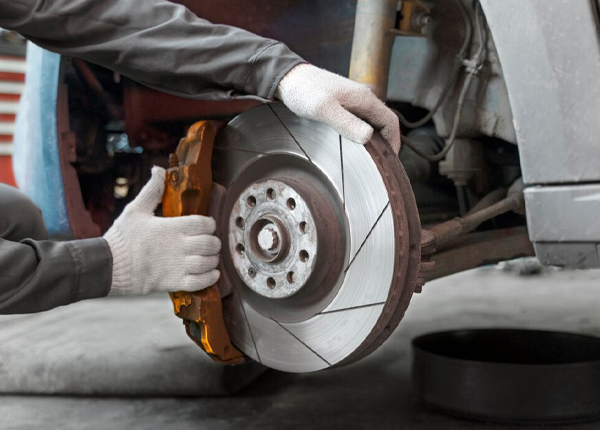Is my car junk? How do you know if your vehicle is junk?
If you’re wondering, “my car is junk,” a junk vehicle typically must have excessive damage, major mechanical issues, high mileage, extremely low resale, or excessive rust.
Determining if your vehicle is junk is crucial when you are selling cars or taking care of them in general. You need to consider several factors when evaluating whether or not your vehicle is junk; these factors can affect the value of your vehicle in many different ways.
This article walks you through all the factors that could affect your vehicle’s value and can help you determine if your vehicle is junk. It also provides some recommendations on what to do if your vehicle is junk.
Is my car junk?
Determining if a car is junk can be tricky, especially for those with no prior experience. Some people may think their vehicles are junk just because there is a problem with the transmission or engine problem. However, that might not be the case.
Therefore, it is critical that you as a driver understand what makes a vehicle junk and what factors you should consider when evaluating your vehicle’s condition. Let’s take a look at some of these doctors:
1. Excessive damages
The first and most common factor that immediately determines whether your vehicle is junk or not is when it has excessive damage. Let’s say your vehicle was involved in a major car accident or a collision that completely crushed most of the vehicle, which could result in a junk vehicle right away.
Similarly, if your vehicle was damaged in a flood or hail, the extent of the damage could be irreparable. In that case, your mechanic or the insurance company might tell you that your vehicle is junk.
2. Main mechanical problems
Not only natural disasters or extreme conditions can cause your vehicle to break down, but there are also some major mechanical issues to look out for. For example, if these issues significantly affect sensitive systems such as the transmission or engine, it is most likely a junk vehicle.
However, that is not always the case. When you’re dealing with that engine or transmission problem, you shouldn’t be disappointed that the vehicle goes to junk because you may have a few options.
As a general rule, automotive experts often recommend evaluating the total cost of repair. If you find that your repair costs are approaching 75% of your vehicle’s value, this could mean your vehicle is junk and you should figure out what to do with it instead of fixing it.
When evaluating your vehicle’s value or total repair costs, it’s important to consider everything. In other words, if your vehicle needs oil changes or tire rotations, you should include that in the final repair cost.
3. High mileage or age
Not only having problems indicates that your vehicle is junk. For example, if your car has high mileage and is getting very old, it could become junk just because it is nearing the end of its useful life.
For example, if you drive a vehicle more than 250,000 miles, you are likely to start facing major engine or transmission related problems. Even if you didn’t take care of these issues, the vehicle is already nearing the end of its life cycle, and that’s where you need to figure out what to do with your junk car.
4. Rust or other forms of body damage
Many extreme weather conditions and situations could cause rust to eat away at the exterior of your vehicle. The problem with rust is that you need help fixing the problem, especially if it gets to the frame or deep components.
Other external body damage and shape problems can also lead to converting your vehicle to a change. Therefore, if your mechanic feels that the frame is damaged or in need of replacement, it can be very difficult to fix this problem and therefore you should consider selling your vehicle or treating it for scrap.
5. Extremely Low Resale Value
Finally, when your vehicle has a very recent low resale value, it could indicate that it is total junk. Sometimes it may not be worth your time and investment trying to fix this car or maintain it as it moves towards the end of this useful life.
So even if you don’t have any clear problems with the vehicle, once the vehicle becomes cheap, and to the point that any possible repairs are not worth the trouble, you should consider it scrap.
Assessing the value of your car
One of the most important pieces of information to help you determine the condition of your vehicle, whether it is junk or not, is to understand the resale value of the vehicle. Many people don’t understand how much their vehicles are worth just because they’ve owned them for a long time, but having this information is essential for moving, and even more important for dealing with your junk car.
There are many ways you can use to help you determine the current value of your vehicle. Let’s take a look at some of these ways:
1. Kelley’s Blue Book
You can start by checking out the Kelley Blue Book online tool. This tool is great and allows you to enter your vehicle information in a simple way and gives you a range of expected values for your car. These ranges represent the minimum and maximum values your vehicle can generate if you are trying to sell it.
You already know that the Kelley Blue Book value does not represent any major problem in your vehicle. And in other words, if you know your vehicle needs an engine replacement, you should determine the repair costs and subtract them from the KBB value to get an accurate estimate of your vehicle’s current value.
2. Professional mechanic
You should check with your mechanic if you are not comfortable with calculations that attempt to subtract repair costs from the KBB value. Talking to the mechanic can be one of the easiest ways to help you determine the value of your vehicle and therefore help you get information gathered to answer your question, is my car junk?
Your mechanic should have the right experience to help you identify how much people are willing to pay for their vehicle. Once you have this information, you can compare it to your repair cost center to determine if your vehicle is junk.
3. Super-motores.com online tool
Finally, if you want to avoid hiring a mechanic to help you determine the value of your vehicle, why not turn to our online tool? On our home page you should find an appraisal tool to help you determine how much your vehicle is worth; So if you’re happy with it, you can go ahead and sell your vehicle to super-motores.com if that’s what you’re looking for.
Factors that affect the value of your car
You should consider several factors when determining the value of your vehicle that could play a role in maintaining or declining value in the future. These are some of the factors to consider:
1. Condition of the vehicle body
Your vehicle is in good condition; you will be sure that the vehicle has a good resale value. However, suppose your vehicle was involved in a major car accident or damaged due to flooding or possible natural events. In that case, the value of the car will drop significantly.
2. The condition of the engine and transmission.
Since the engine and transmission are the main components of any vehicle, it is essential to keep them in good condition. They can play an important role in determining the current value of your vehicle. If there is a minor problem that you could fix, you can improve the current value of the vehicle, especially when you plan to sell your vehicle soon.
3. Mileage
The mileage on your vehicle is another important factor in helping you determine if it is valuable. If the vehicle has high mileage or is nearing the end of its useful life, it could indicate that the value of your vehicle is falling.
What to do if your car is junk?
If you are wondering if my car is junk and determine that your car is a complete junk, then the next step is to determine what to do with this vehicle.
Fortunately, there are several ways to help you deal with your junk vehicle, including:
1. Sell your vehicle as parts
2. Donate your junk car
3. Repair your junk car
4. Sell your junk car to super-motores.com
conclusions
Dealing with a junk car can be a bit stressful, but identifying if your vehicle is junk is more critical. This article walks you through several factors that could help determine if your vehicle is junk. It also helps to clearly answer the question, is my car junk?
Clear exterior damage, major mechanical issues, high mileage, and more are common features of vehicles that are considered junk. So, if any of these sound familiar, consider researching your options as a junk car owner.



